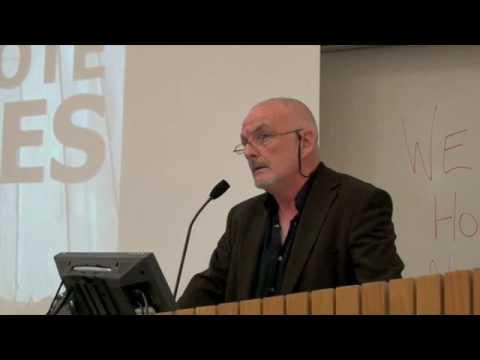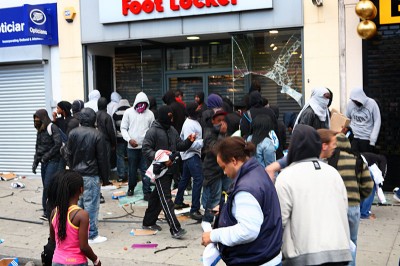On March 29 we commented on a ruling by London’s Central Employment Tribunal which rejected Ronnie Fraser’s charge of institutional antisemitism against the University and College Union (UCU).
Fraser had charged the UCU with fostering an atmosphere of antisemitism which created an ‘intimidating’, ‘hostile’, ‘humiliating’, and ‘offensive’ work environment’ for Jews – citing, in part, the union’s decision to reject the EU Working Definition of Antisemitism on the grounds that it had the effect of ‘silencing debate on Israel’.
The EU working definition (as it pertains to Israel and Zionism) characterizes the following as antisemitic: denying the Jewish state the right to exist, applying double standards by requiring of it a behavior not demanded of any other democratic nation, using the symbols associated with classic antisemitism (such as blood libels) to characterize Israel or Israelis, holding Jews collectively responsible for actions of the state of Israel, and drawing comparisons of Israeli policy to that of the Nazis.

Further, as David Hirsh detailed in a superb post at Engage yesterday, in addition to the UCU’s rejection of the EU working definition, there were a number of other incidents representing a culture whereby “antisemitism was accepted as normal within the union” – many of which Hirsh outlined:
In 2006 Ronnie Fraser stood as a delegate to NATFHE conference (a predecessor to UCU). It was said at the regional meeting that Fraser could not be a delegate because he was a Zionist and therefore a racist. NATFHE held an investigation and found that this statement had not been antisemitic.
Israel has been relentlessly condemned at every UCU Congress, often by motions to boycott Israel. There were no motions to boycott any other states.
The Parliamentary Inquiry into Antisemitism reported that the boycott debates were likely to cause difficulties for Jewish academics and students, to exclude Jews from academic life and to have a detrimental effect on Jewish Studies. UCU responded that these allegations were made to stop people from criticizing Israel. 76 members of the UCU published a critique of the union’s response, but the union took no notice. John Mann MP told the Tribunal that UCU had been unique among those criticized by the inquiry in its refusal to listen.
Sean Wallis, a local UCU official, said that anti-boycott lawyers were financed by “bank balances from Lehman Brothers that can’t be tracked down”. Ronnie Fraser asked him whether he had indeed made this antisemitic claim. Wallis admitted having said it. But it was Fraser who, for the crime of asking, was found to have violated union rules concerning “rude or offensive communications”.
Gert Weisskirchen, responsible for combating antisemitism for the Organisation for Security and Co-operation in Europe (OSCE) asked the union leadership for a meeting to discuss antisemitism relating to the boycott. The union did not meet with him. When 39 union members protested publicly, the union ignored them.
The union invited South African Trade Unionist Bongani Masuku to speak at a pro-boycott conference in London. Masuku was known to be under investigation by the South African Human Rights Commission for antisemitic hate speech. Here is an example of what he had said: “Bongani says hi to you all as we struggle to liberate Palestine from the racists, fascists and Zionists who belong to the era of their friend Hitler! We must not apologise, every Zionist must be made to drink the bitter medicine they are feeding our brothers and sisters in Palestine”. Masuku also said that vigilante action would be taken against Jewish families suspected of having members serving in the Israeli military, and that Jews who continued to stand up for Israel should “not just be encouraged but forced to leave South Africa” The union ought to have known Masuku’s record. Ronnie Fraser told the union about Masuku’s record. Masuku was found guilty in South Africa of hate speech before speaking as a guest of UCU. And months later, UCU Congress explicitly rejected a motion to dissociate itself from Masuku’s “repugnant views”.
The Activists’ List is an email list hosted by the union.
Ronnie Fraser argued on the list that there was no absolute blockade of Gaza. In response, another union member said that he was like the Nazis at Theresenstadt. The union found that there was nothing inappropriate about this comment.
Josh Robinson put together a detailed formal complaint about antisemitic language being employed by union members on the list. He documented how people who opposed antisemitism on the activists’ list were routinely accused of being: deranged, crazy, nutters; Israeli agents; hysterical; dishonest; twisted; rotten Zionists; less than human; believers in a promised land; motivated by the fairy story of the Old Testament; genocidal; accepting of the murder of innocents; racist; pro-apartheid; supporters of ethnic cleansing; Nazis. The Holocaust was referred to as an ‘attempted genocide’. There followed volleys of insults made against those who raised concerns about this description of the Shoah. The formal complaint was given to Tom Hickey to adjudicate. Hickey himself, the Tribunal was told, had said that Israel is “more insidious and in some sense almost nastier” than Nazi Germany. In the end, nobody even bothered to tell Robinson that his complaint had been dismissed.
A number of other people made similarly careful formal complaints. The union did not once, ever, find that anything complained of was antisemitic.
A significant number of union members resigned over the issue of antisemitism. Congress voted down a motion to investigate these resignations. There was no mechanism for counting resignations over antisemitism, and such resignations were instead counted as being because of disagreements over the Middle East.
People who complained about antisemitism in the union were routinely confronted with accusations that they spoke in bad faith. They were told that they were making it up in order to try to silence criticism of Israel. They were accused of ‘crying antisemitism’.
In court Sally Hunt, the General Secretary of the union was asked hypothetically: “If somebody said ‘if you want to understand the Jews, read Mein Kampf’, would that be antisemitic?” She answered that it would not necessarily be antisemitic.
Astonishingly, not only did the Tribunal rule that these incidents did not represent antisemitism, but, in a close approximation of the Livingstone Formulation, outrageously accused Fraser and his 34 witnesses of trying to ‘intimidate’ and ‘silence’ critics of Israel with an invented accusation of antisemitism.
May the examples cited above, of the undeniable racism suffered by Jewish members of the UCU, serve to shame those who have been critical of Fraser and his supporters – some of whom have even suggested that the UK Jewish community should never have taken on the fight in the first place.
Fraser, and those who had his back, should be admired for acting on principle, morality, and justice – and continue to deserve our unqualified support.
You can read the rest of Hirsh’s masterful response to the Tribunal’s outrageous ruling here.
Related articles
- The courage of Ronnie Fraser (Commentary)
- How British Justice Failed Ronnie Fraser (Commentary)



